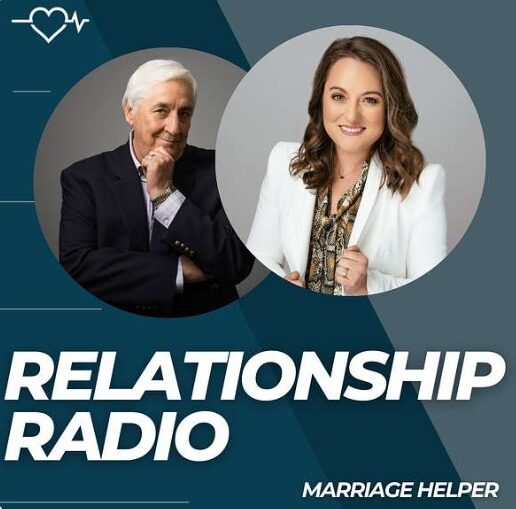If you’re asking “is he cheating?” or “is she cheating?”, the uncertainty and emotional turmoil can feel overwhelming. Understanding the signs of an affair and recognizing the subtle patterns that reveal signs he is cheating or she is cheating can help you move from suspicion to understanding — and determine what comes next. At Marriage Helper, we provide compassionate guidance to help you navigate these painful questions, gather clarity, and decide how to act with hope, not fear.
The discovery of an affair is a pivotal moment in a marriage. It’s marked by a complex mix of emotions and questions.
While every couple’s situation is unique, there are common ways in which one spouse finds out about an affair. And each brings its own set of challenges..
This article looks at signs of an affair and how most affairs are discovered.
From unexpected confessions to finding physical evidence, we explore the dynamics of these situations and help you find answers. Don’t keep asking “is he cheating / is she cheating?” Read on to bring more clarity to your situation.
If you’re someone who just recently found out about your spouse’s affair, we can help you navigate this confusing period in your marriage and get the support you need. Explore Marriage Helper Workshops
5 Common Ways Affairs are Discovered
Discovering an affair often does not result from a single, dramatic revelation.
It’s usually the culmination of small, noticeable changes that gradually make a wife ask “is he cheating?” or a husband ask “is she cheating?“
When you see possible signals of cheating from your spouse, know that this is not the time to assign blame or live in suspicion.
This is an opportunity to strive harder to foster an environment of honesty and trust in your marriage.
Most affairs are discovered in one of a few ways. However, there is no definitive way to know if your spouse is cheating, unless he or she admits it.
Signs of an Affair: Changes in Behavior and Routine
One of the most telling signs that your spouse is having an affair is seeing a shift in their behavior or daily routine.
These changes are often subtle and gradual. But they can send up a silent alarm indicating something isn’t quite right.
It could be as simple as…
- Paying more attention to their appearance
- Showing an unusual interest in new hobbies
- Coming home later than usual without a good explanation
While these signs can be misleading and are not definitive proof of an affair, they do warrant some attention.
It’s important to approach these observations with an open heart and mind.

Accusing your spouse of cheating without any real cause for concern can further damage your marriage.
Instead, gently express your concerns and give your spouse the opportunity to explain.
This can often lead to deeper conversations that may address underlying issues in your relationship, perhaps issues that even your spouse wasn’t fully aware of.
Signs of an Affair: Text, Email, Social Media DMs
Technology often plays a significant role in revealing affairs.
Text messages, emails, social media activity, and even location history on shared devices can inadvertently become the source of painful discoveries.
These digital footprints can be subtle – a hastily deleted text, an unusual number of calls to an unknown number, or even a change in what they post online.
However, you need to tread carefully.
Respecting your spouse’s privacy is fundamental in any relationship, and violating this can further impair your marriage.
If you do come across such digital traces, it’s important to approach the situation with calmness and clarity.
Signs of an Affair: Hearing It From a Friend
Discovering your spouse’s infidelity can sometimes come from someone close to you.
A friend might learn of an affair and feel compelled to share this information, often out of concern for you.
This kind of discovery can be particularly shocking. It’s not just the content of the revelation that stings, but also the mode of delivery.
Hearing about a spouse’s affair from a friend can complicate feelings further. It introduces a social dimension to the already painful experience of betrayal.
The bearer of bad news might be a mutual friend or someone from a social circle you share with your spouse, which adds layers of trust issues and embarrassment to the situation.
It’s important to remember that your friend likely shared news of the affair out of care for you and not with the intent to hurt you.
While shame is a common emotion when learning of an affair in this way, keep in mind that it is not your fault and that your friend’s revelation can help put you and your marriage on the path to recovery.
Signs of an Affair: Physical Evidence
Few things are as jarring as stumbling upon physical evidence of signs he is cheating / she is cheating.
It’s often the mundane, everyday items that reveal the hidden truths – a receipt tucked in a coat pocket, a hotel keycard, or a piece of jewelry.
These small, physical items convert suspicions or denial into a reality that’s hard to ignore.
Finding this evidence within the intimacy of a shared life can feel like betrayal.
The moment of discovery can mark a turning point in the marriage. At worst, it pushes a reckoning with truths about your relationship that can no longer be overlooked.
Signs of an Affair: Fishy Transactions
Financial irregularities can also be a tip-off to an affair.
Unexplained withdrawals or charges that don’t fit the pattern of your usual expenses might raise red flags.
It’s not uncommon for affairs to leave a trail in the joint finances—whether it’s charges for gifts, hotel rooms, or unusual outings.
These transactions are usually secretive like being tucked away in monthly statements.
Discovering financial clues can raise a lot of questions and doubts, particularly when your spouse chooses to deflect or deny it.
This situation is challenging since it intertwines the emotional pain of infidelity with practical concerns about financial security.
The Emotional Impact of Discovering an Affair
The initial realization that your spouse has been unfaithful can unleash a flood of emotions – shock, hurt, betrayal, anger, and confusion are common.
You might find yourself oscillating between disbelief and painful clarity, grappling with questions about the future of your relationship and your sense of self-worth.
It’s important to acknowledge that these emotions are valid and natural responses to a significant breach of trust.
Allow yourself to feel these emotions without judgment.
There’s no “right” way to feel in these situations. Every individual’s response to discovering their spouse’s infidelity is deeply personal.
The most important thing is to avoid making impulsive decisions. The pain and shock can cloud judgment, leading to actions you might regret later.
The discovery of an affair is undeniably painful, but it is also an opportunity for growth and healing after being cheated on.
With the right support and resources, individuals and couples can emerge from this experience stronger, more self-aware, and with a renewed sense of hope for the future.
What to Do After Your Spouse Admits to Cheating
In the wake of discovering an affair, it’s important to navigate these delicate conversations with your spouse.
The key is to focus on your approach, tone, and the willingness to listen and understand.
If your goal is to truly save your marriage after this experience, you will approach the situation with a clear mind and not with a desire to resent your spouse.
Confront the Issue
Approaching your spouse about an affair is undoubtedly challenging. It requires a balance of honesty, vulnerability, and strength.
Start by choosing the right time and setting – a private, quiet space where you can speak without interruptions or distractions is ideal.
It’s important that both you and your spouse feel safe and comfortable to express your thoughts and feelings.
When you initiate the conversation, try to speak from a place of ‘I’ statements, such as “I feel hurt” or “I am confused,” rather than accusatory ‘you’ statements, which can make your spouse defensive.
This approach allows you to express your feelings and concerns without placing blame. It’s about opening a dialogue, not starting a confrontation.
Be clear about your intentions for the conversation.
Whether it is seeking clarity, understanding, or expressing your feelings, being transparent about your goals can help guide the discussion in a constructive direction.
Listen and Understand
Active listening involves truly hearing what your spouse has to say and trying to understand their perspective, even if it is difficult.
This doesn’t mean you have to agree with or accept their actions, but it does mean giving them a chance to express their side of the story.
Listening actively also means being mindful not to interrupt, judge, or jump to conclusions.
Remember, effective communication is a two-way street. It’s about expressing your own thoughts and feelings while also being open to hearing and understanding your spouse’s.
It’s through this process of open, honest, and empathetic dialogue that healing begins.
Most importantly, remind yourself that even good people can commit infidelity. And your spouse’s affair does not mean that they’re a bad human altogether.
Professional Guidance with Marriage Helper
Seeking professional guidance is a critical step in the recovery process. Marriage counselors and therapists can provide an objective perspective and expert advice, helping couples navigate the complex emotions and issues that arise from an affair.
They offer a safe space for both spouses to express their feelings, fears, and desires openly.
Marriage Helper takes this support a step further by offering specialized programs and resources tailored to couples dealing with infidelity.
Their approach is grounded in research and empathy, focusing on understanding the underlying issues that led to the affair and working towards healing those wounds.
Marriage Helper’s workshops and counseling sessions are designed to facilitate honest communication, foster forgiveness, and rebuild the foundations of a healthy relationship.
Involving professionals like those at Marriage Helper can be a turning point for moving forward from an affair in a constructive and hopeful approach.
Rebuilding Trust After an Affair Takes Time
Rebuilding trust is not an overnight process. It requires time, patience, and consistent effort from both spouses.
And it means re-establishing your intimacy and connection. So be patient with yourself and your spouse.
Trust rebuilds at its own pace, and there might be setbacks along the way. What’s important is staying committed to the process and each other.
With the support of resources like Marriage Helper, and a dedication to open, honest communication, couples can find their way back to a trusting, loving marriage.
Our marriage workshops provide a platform for couples to learn and grow together, addressing key aspects like communication, intimacy, and trust.
For ongoing support, you can join our online membership and meet a community of couples going through the same path to recovery.
WE WANT TO HELP
At Marriage Helper, we’ve walked alongside thousands of couples and spent decades researching what really works to strengthen marriages. Our goal is to provide you with practical, research-backed guidance—like the free information you’ve found on this page—because we genuinely care about helping marriages thrive. If you’re ready to go deeper, our workshops, membership, and one-on-one coaching offer even more tools, insights, and personalized support to help you navigate your unique journey and create lasting change in your relationship.
Our intensive Marriage Helper Workshop has a remarkable 70% success rate in saving marriages, even if your spouse is reluctant or unwilling to participate. And here’s what’s even more encouraging: 99% of participants recommend our program to others, regardless of their ultimate outcome.
Learn more about:





